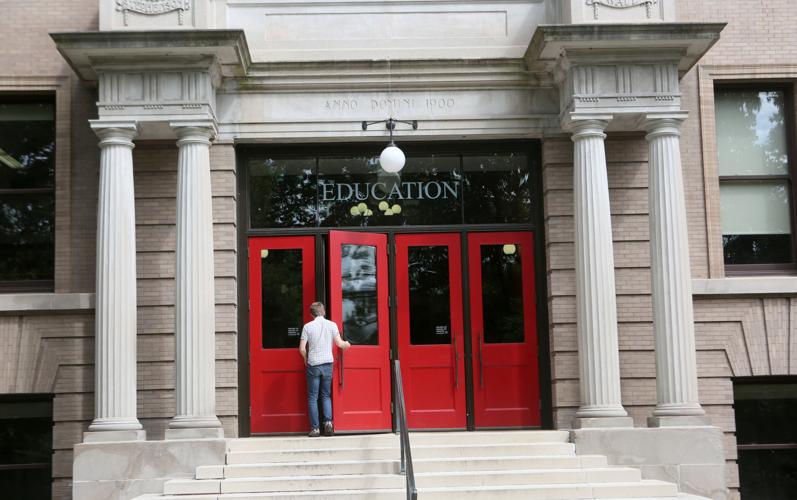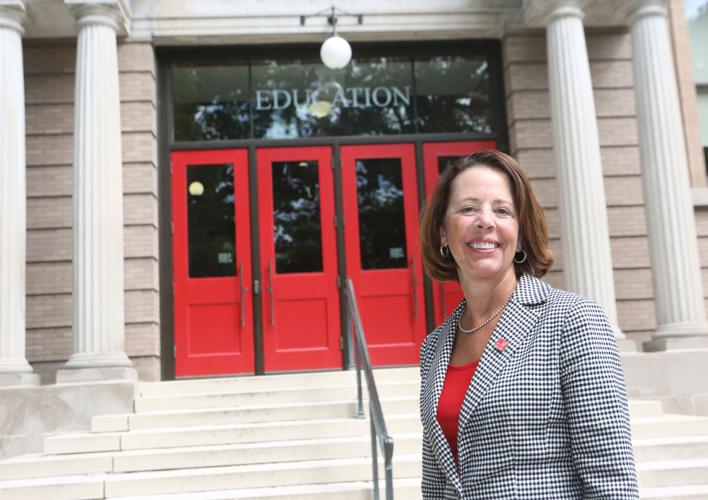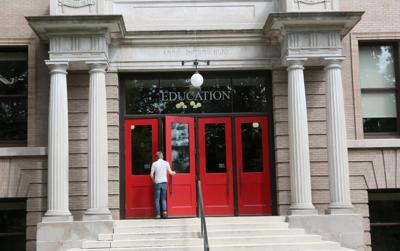The University of Wisconsin-Madison’s education school is extending its Wisconsin Teacher Pledge for a third time in an aim to address teacher shortages across the state.
With $8 million in donations, including a $4 million contribution from Wisconsin philanthropists Mary and Ted Kellner, the program will now go on for another two years. It will last through the 2028-2029 academic year.
The program within the School of Education covers in-state tuition and fees, as well as testing and licensing costs, for all teacher education students who commit to working in any Wisconsin school for four years. Those who pledge to work in subject areas or school districts with high need can complete their service in three years.
“We have a pretty serious teacher shortage in Wisconsin,” said Diana Hess, dean of the School of Education. “(The Teacher Pledge) provides a strong incentive for people who graduate from our teacher education programs to stay in the state and teach, and stay teaching long enough that research would suggest they might be more likely to be in it for the long haul.”
Launched in 2020, the donor-funded initiative was scheduled to last until 2025. In 2022, the School of Education first extended it through 2026. And a $5 million donation last year from bestselling author James Patterson and his wife, Susan Patterson, allowed the program to go on through 2026-27.
In total, the school has raised $33.3 million to support the initiative.
Since its launch, nearly 800 students have taken advantage of the Teacher Pledge, according to the School of Education. Over 350 of the program’s graduates currently teach in 88 public school districts and over a dozen private schools across Wisconsin.
Program targets teacher shortage, turnover
The Teacher Pledge’s extension comes as Wisconsin public schools have faced historic teacher shortages in recent years, with fewer students pursuing education degrees in the U.S. and districts reporting smaller applicant pools.
There’s also a significant rate of teacher turnover in Wisconsin, according to a recently released report from the state Department of Public Instruction.
The report, released earlier this month, uses data from the 2021-22 school year and a survey from last fall. Of the state’s over 400 school districts, 37% responded.
It found that nearly 40% of new teachers either leave the state or the profession altogether after just six years on the job.
Among the reasons respondents said they left their jobs last school year: high workloads, low compensation, work-life balance and a move to a different profession. Accounting for inflation, the median compensation — including salaries and other benefits — for the state’s educators has fallen nearly 20% since 2010, according to the study.
The report also found that some who earn their teaching license do not end up choosing to work for a Wisconsin public school. In 2021-22, over 20% of those who completed a teacher preparation program opted not to become a public school teacher.

Diana Hess is the dean of UW-Madison's School of Education.
The Teacher Pledge targets the state’s low teacher-retention rate and incentivizes participants to become teachers by requiring them to work within the same school for three or four years, Hess said.
It also lowers the amount of student debt for aspiring educators, indirectly raising their standard of living, Hess added.
“I was really concerned that so many of our teacher education students were graduating with student debt, and then they were going into school districts where salaries were pretty low,” she said. “That's one reason we were so interested in making sure that we had a program that was as robust as this one.”
Nicholas Hillman, a professor with the Department of Educational Leadership and Policy Analysis, is additionally leading a study on the Teacher Pledge’s effectiveness.
According to the School of Education, students who take the Teacher Pledge are reporting less student debt, improved mental health as a result of decreased financial stress and a reduced need for outside work, allowing them to focus on full-time student teaching.
“What I'm hoping is that this will become a really good model that will be picked up by the Legislature and will be applied to teacher education programs statewide,” Hess said. “There's a lot of interest in the Teacher Pledge from organizations and programs in other states. People are really interested in how this is working.”








